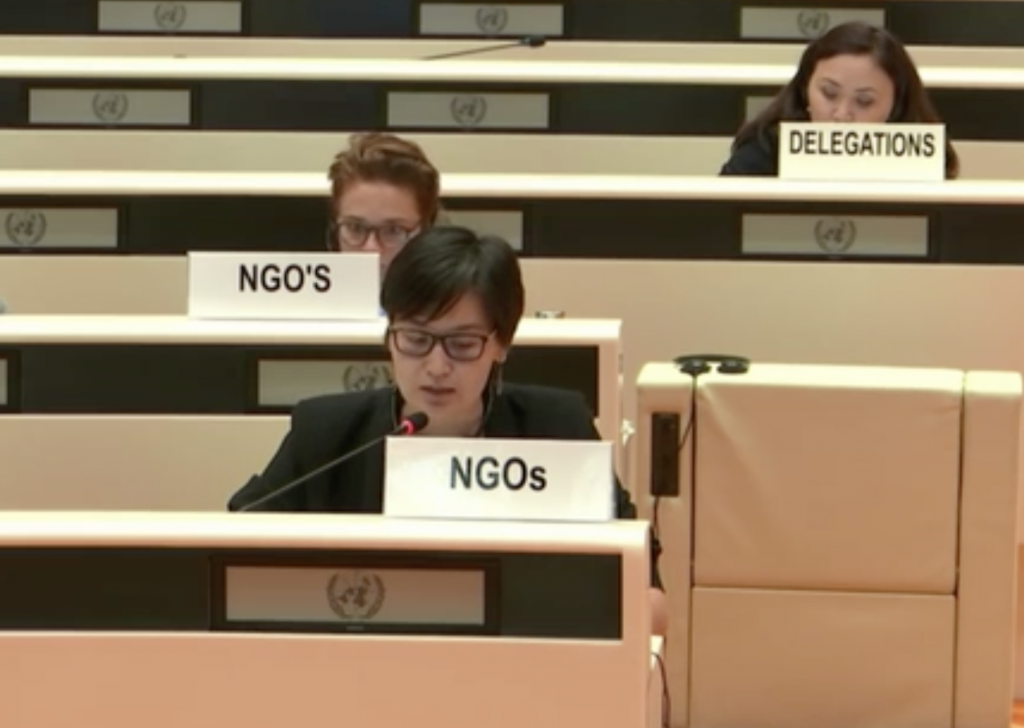On 12 October 2021, President Kassym-Jomart Tokayev signed a set of amendments to the Labour Code of Kazakhstan, lifting the ban on employment of women in 229 professions. The Law, officially named On Introduction of Amendments and Additions to Some Legislative Acts of the Republic of Kazakhstan On Issues of Social Protection of Certain Categories of Citizens, was adopted just in time for the state follow-up review at the United Nations Committee on the Elimination of Discrimination Against Women (CEDAW) due in November 2021.
Context
The ban, a remnant of the Soviet ban on employment of women in ‘harmful and hazardous jobs’ adopted in 1930 to ‘ensure protection of maternity and women’s reproductive health’ and consisting of 431 prohibited occupations at its height in 1978, migrated unhindered to the labour legislation of independent Kazakhstan. It has remained in place for three decades with little up-to-date scientific grounding barring women from working in more than 20 economically profitable fields (e.g. transportation).
Prohibited jobs were listed and enforced by ministerial decrees, alike to the List of Jobs Prohibited for the Use of Women’s Labour (referred to hereafter as ‘the List’), and were occasionally revised with minor changes every few years, usually ahead of a forthcoming external review at a UN committee.
This blanket ban on women’s employment based on the argument of governmental ‘care’ about ‘safeguarding’ women’s (only) reproductive function could have stayed effective for another 90 years in Kazakhstan with reviews of its items paced few and far between. All the while women who were trained and excelled at careers in banned jobs were forced to operate in the informal gray zone as they had to settle for significantly lesser pay with no social security benefits and labour safeguards left at the mercy of their employers and vulnerable to abuse.
It took working women and grassroots advocates whose to bring the issue into the spotlight and onto the tables of decision-makers.
Advocacy
When I started working on the repeal of the ban in 2018, there was little awareness about its existence and the List. Raising it was often met with surprise and disbelief. When a Brussels-based NGO approached local experts on discrimination in an attempt to partner for a joint alternative submission to CEDAW, no one showed interest in taking the issue on board as it was believed that no women were working at these jobs and that there was no ‘case’.
As it turned out women had been working at banned jobs—underground.
Following the submission of the joint report to the CEDAW pre-session in 2019, I met Almagul Kabylbekova, a heavy truck driver from Temirtau, who was harassed and fired by her employer for uploading videos about her work on YouTube. Upon her dismissal, her employment records were backdated as a driver of a light vehicle. She then took on a series of informal makeshift jobs until eventually getting employed as a heavy truck driver abroad where it was legal. This was the case until the closure of international borders with the onset of the pandemic, at which time Almagul filed for unemployment benefits. With no legal evidence at hand and absence of constitutional court proceedings in Kazakhstan, there were few avenues left for redress. So, we bet on advocating for abolition of the ban with the executive and legislative branches through an awareness raising campaign.
The campaign comprised multiple methods of outreach, from reports to the UN Human Rights Council, CEDAW, and Committee on Economic, Social and Cultural Rights and communications with International Labour Organisation and World Bank—all unanimously recommending that Kazakhstan revoke the ban—to meetings and round tables with the Ombudsperson, MPs, and members of Parliamentary committees. By the end of 2020, the issue of the List made it to the ruling party Nur Otan’s election programme; by the end of May 2021 to the Parliament; and by mid-June to the Government’s Human Rights Priority Action Plan. The ban was finally struck down in October 2021.
Analysis
Lifting the blanket ban without reservations on ‘women’s reproductive function’ is a win over societal and policy framings of women as exclusively mothers and caregivers. It is an important milestone in challenging discrimination and gender stereotypes in the country and demonstrates that under certain circumstances grassroots women’s mobilising (even with limited resources at hand) could prove to be effective. Yet, there should be no illusions as to how and why it came together now.
It is clear that legislators took the same protectionist approach as when narrowing the number of prohibited occupations in the name of technical progress: no recognition of discrimination, no recognition of women’s agency.
The amendments are included in the umbrella law with a speaking title ‘On Issues of Social Protection of Certain Categories of Citizens’. Women here are regarded not as subjects capable of making conscious choices on their own behalf but as weak and in need of protection. The issue is framed as socio-economic and depoliticised.
Lifting the ban is also presented as a top-down conferral of blessings by the sovereign to which everyone should rejoice, not as inalienable rights won in the long struggle of women working at banned jobs and grassroots advocates. Meeting MPs as the amendments entered the Parliament, I was asked on several occasions to avoid references to ‘feminists’ as legislators did not wish for such an association with the bill and stir public outcry.
Ultimately, lifting the ban represents largely an outward-oriented move. The main rationale behind its hasty timing to this October is Government’s attempt to whitewash its failure to adopt the Bill on Domestic Violence, which was recalled for revision in January 2021 after yielding to demands of conservative groups, on time to the state follow up review at CEDAW due in November. In fact, the review will assess Kazakhstan’s progress on four short-listed issues: (1) adoption of the law on domestic violence, (2) abolishment of mandatory gender reassignment surgery, (3) criminalisation of forced sterilisation and abortion of women, and (4) repeal of the list of prohibited occupations for women. With the first three being at a standstill, lifting the ban on employment of women is considered a ‘lower hanging fruit’. To put it plainly, the ban gets its priority pass to the Parliament because it is deemed less dangerous and an easy way to compensate for the rest.
Kazakhstan’s state obligation does not end at striking down a paragraph in the Labour Code. “I am happy that [the ban] is revoked but this has not affected my career and pay in any way,” says Almagul. Employers are still reluctant to hire women while fellow male employees remain hostile to women, and the moral and material losses Almagul incurred remain uncompensated.
The State’s positive obligation, an obligation to ensure the effective enjoyment of the rights, means that women, employers and wider society should be widely informed that the ban has been abolished, and women should be guaranteed equal access to professional education and employment at formerly prohibited occupations.
Revoking almost a century-old legal ban on women’s employment discreetly marks 30 years of Kazakhstan’s independence. When placed in context of the backslide on domestic violence legislation and transgender people’s rights, it also marks the State’s attempt to cover up for the growing conservative gender backlash in the country.
Women are still denied agency and ‘women’s question’ (“zhenskiy vopros”) is still considered an easy avenue for international political gain while separate issues are being weighed against each other. The success of grassroots and women’s work rests on political scales of co-optability.
All in all, lifting the blanket ban without reservations on ‘women’s reproductive function’ is a significant win for women’s rights. Yet, with lack of awareness and implementation of the ban in practice, it brings little meaningful change.
To all the unnamed women who worked the banned jobs past and present.
Aigerim Kamidola is an independent consultant in international human rights law, interdisciplinary research and practices. She has been leading an advocacy campaign on the repeal of the ban on employment of women in prohibited occupations in Kazakhstan since 2018.




